
Freshfel Headlines – Number 5, 2019

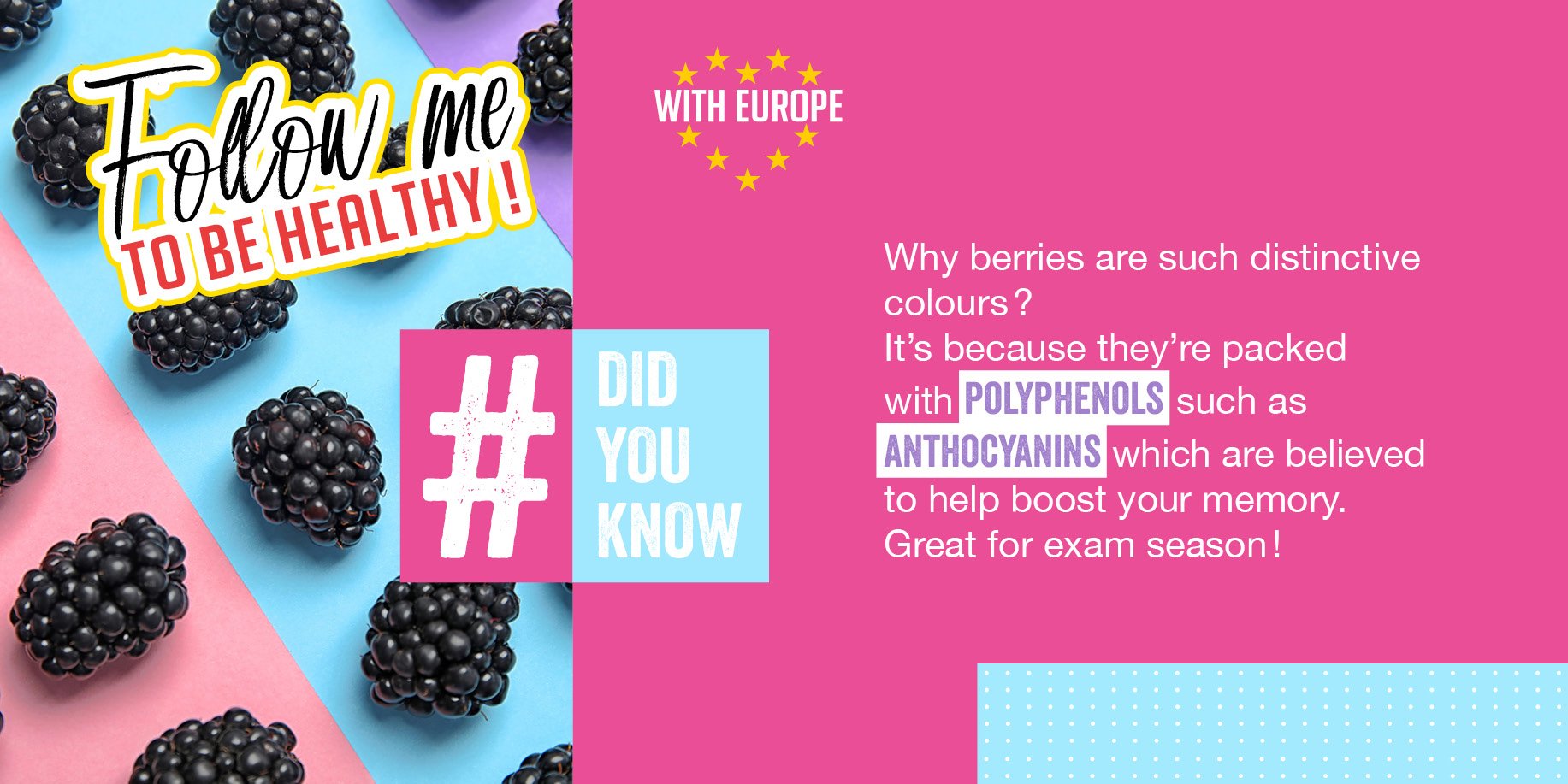
Positive results for Freshfel Europe’s ‘Follow me to be healthy with Europe’ campaign
In July 2019 Freshfel Europe together with Aprifel launched the ‘Follow me to be healthy with Europe’ campaign, co-funded by the European Union. The programme was launched at the Eurockéennes in Belfort, France and has continued to gain traction on social media with the help of influencers who have a broad outreach to the target audience, young Europeans aged between 18 and 30 year old. The programme focusses on millennials as their consumption of fruit and vegetables is notably low throughout Europe, where consumption in general is stagnating or decreasing. Among those not consuming the recommended 400g per day millennials are some of the worst offenders. The campaign employs social media to disseminate the campaign messages to millennials as this is one of the most effective ways to reach this target group.
In August the campaign focused on how it is easy to obtain the necessary minimum of 400g of fruit and vegetables per day in a summer picnic, whilst in September the campaign highlighted the convenience of including at least 400g of fruit and vegetables in your daily routine with the start of the new academic year. Early KPIs show that for some of the indicators the campaign has already obtained the targets for its Social Media platforms and the influencers’ platforms that were initially set for the full 3 years of the campaign. These KPIs demonstrate that the content is being successfully amplified via the campaign’s platforms and on-the-ground events and also via the influencers and their followership. For more information about the campaign please contact h.deruwe@freshfel.org.
Want to know more? Follow us on
- YouTube: 400gChallenge
- Instagram: @400gChallengeEU
- Facebook: Follow me to be healthy & Suis moi pour être en forme
- Twitter: @400gChallengeEU & @400gChallengeFR
- Website: www.400gchallenge.eu
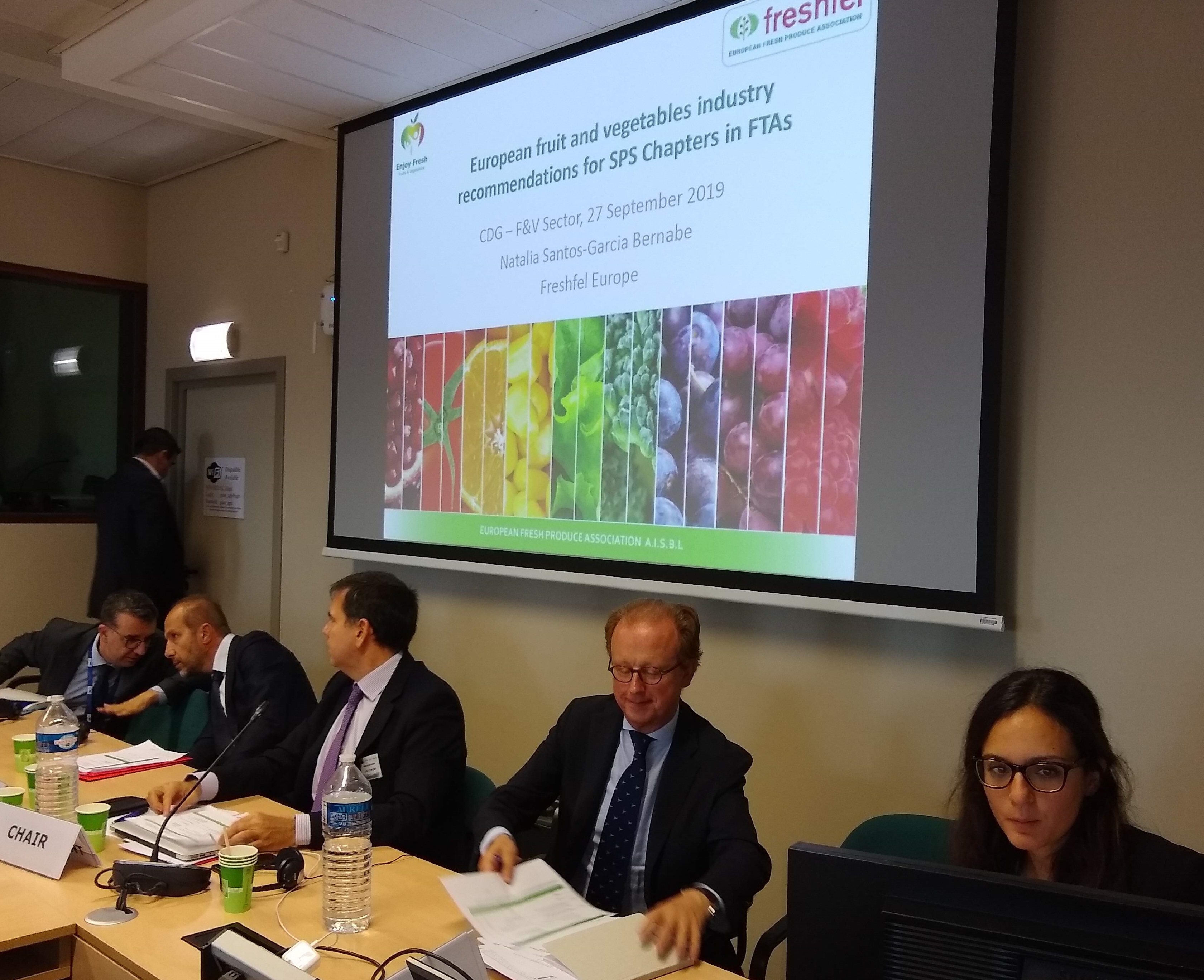

Jose Antonio Garcia Fernandez, Freshfel Europe Board Member reappointed to lead European Commission CDG on Fruit and Vegetables
On 27 September 2019 Mr Jose Antonio Garcia Fernandez, Director of Ailimpo and Freshfel Board Member was re-elected as Vice Chair of the European Commission Civil Dialogue Group on, and in this capacity is chairing the Civil Dialogue Group on Fruit and Vegetables. During the meeting, several issues relevant for the sector were discussed with the European Commission, including an update of the CAP reform and mutual funds adjustments, the latest uptake for the EU School Fruit and Vegetable Scheme and the progress on the new Commission initiative for market transparency. After a discussion on trade development and state of play of the FTA with Mercosur, Freshfel Europe Policy Advisor Natalia Santos-Bernabe Garcia presented on SPS issues and opportunities to address market access restrictions with new tools in FTAs and more international standards within a multilateral environment.
During the meeting, Freshfel Europe also shared the July launch their ‘Follow me to be healthy with Europe’ campaign, the first ever pan-European promotion campaign for fruit and vegetables. Freshfel Europe Policy Advisor Helene Deruwe explained that the campaign focuses on the link between health and fruit and vegetable consumption and that the campaign’s target audience is millennials. The ‘Follow me to be healthy with Europe’ is jointly run with Aprifel and is already producing very positive results.
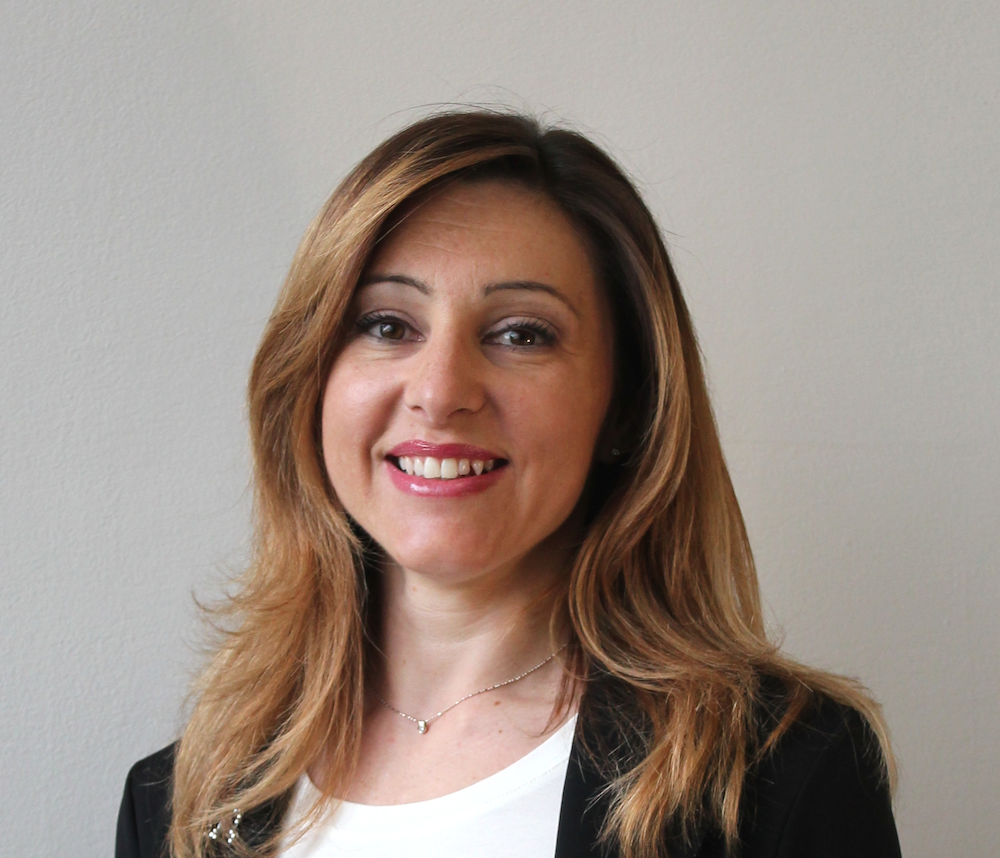
Freshfel Europe presents management differences between single and multi promotion programmes of EU agricultural products to Expert Group on Promotion
During the recent meeting of Member States experts on promotion with the European Commission services, Mrs Simona Rubbi (CSO and Vice Chair of the EU Civil Dialogue Group on Promotion and Quality) made a presentation on the operational differences of the management of simple programme by Member States and of multi programme by Chafea. Mrs Rubbi was assisted at the meeting by Freshfel Europe General Delegate Philippe Binard. The comparison was prepared with the support of several Freshfel Europe members based on practical experience.
The presentation covered many different aspects, including contact persons in the administration, system of data interchange, management criteria, adjustments of criteria, approval of graphic design and visuals, notification of activities and planning, financing aspects including bank guarantees system, budget adjustment year on year, controls schemes and procedure, timings for agency contracting, and the interpretation differences. The European Commission and Member States representatives highly welcomed the very constructive input provided by Freshfel Europe members, which has come in a timely manner as an evaluation of the current Promotion Regulation is about to begin.
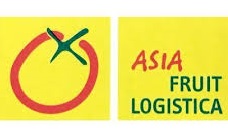
Freshfel Europe presents at European Commission promotion event at Asiafruitlogistica, Hong Kong
On the 6 September at Asiafruitlogistica in Hong Kong Freshfel Europe General Delegate Philippe Binard presented the latest trends and opportunities of European fruit and vegetables on the Chinese and South East Asian markets at the European Commission seminar organized under the ‘Enjoy it’s from Europe’ campaign.
Exports of EU fresh produce to China grew from 4,000 T to almost 50,000 T in the last 10 years. The growth was dominated by more than 50% of Spanish oranges and 20% of Italian kiwifruit but remains well below Chinese exports to the EU, which are reaching 180,000 T. The sector is working hard to improve trade opportunities in China, a market with growing consumer expectations for premium quality products that could be supplied by EU sources. More efforts need still to be dedicated to clear pending protocols, remove hurdles or limit existing ones while providing more flexibility to grasp evolving market expectations. Trade should be boosted based on trust that can be granted by Chinese counterparts based on the confidence in EU quality and controls systems.

Freshfel Europe attends Childhood Obesity Stakeholder Conference
On 16 September 2019 the ‘Science and Technology in Childhood Obesity Policy’ (STOP) project organised their first annual stakeholder conference in Brussels. Freshfel Europe Policy Advisor Nicola Pisano attended the conference to learn about the project’s activities and attend the conference workshops. STOP is a four year project (June 2018 – May 2022), which has received €10 million in funding from the European Commission to identify policy changes to address childhood obesity across Europe. The one-day conference began with a detailed presentation of the project to stakeholders from health and agri-food sectors, followed by a presentation of the results of STOP’s stakeholder survey on stakeholders’ views on different policy options and approaches to tackle childhood obesity. In the afternoon Ms. Pisano participated in two workshops on STOP policies and approaches for tackling childhood obesity in relation to social marketing and food reformulation, taxation and labelling. The feedback given during the workshops will inform STOP’s methodologies on these topics. More information is available here.
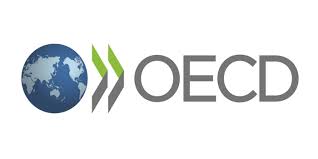
Freshfel Europe teams up with OECD to explore European F&V online sales
Over the past few years selling fruit and vegetables online has been espoused as an emerging trend with future potential. During a kick-off examination, prepared for the 32nd International Meeting of Quality Control for Fruit and Vegetables in Bonn, Germany in spring 2019, Freshfel Europe discovered that the online fruit and vegetable sector was lacking qualitative and quantitative data on consumer uptake as well information on suppliers and regulatory components, which may affect fruit and vegetable online sales. This lack of information on the overview of the structure of the sector is exacerbating the challenge online sales is facing in terms of abiding by existing rules for control and food safety and marketing standards regulations, which are currently tailored for traditional sales structures. To fill this information gap Freshfel Europe has teamed up with the OECD to examine the structure of fruit and vegetable e-commerce and to discuss the regulatory ramifications for food safety, marketing standards and labelling and controls. A draft report will be created and presented by Freshfel Europe’s Director for Trade Policy Nelli Hajdu during the OECDO fruit and vegetable scheme meeting in December 2019 in Paris, France.
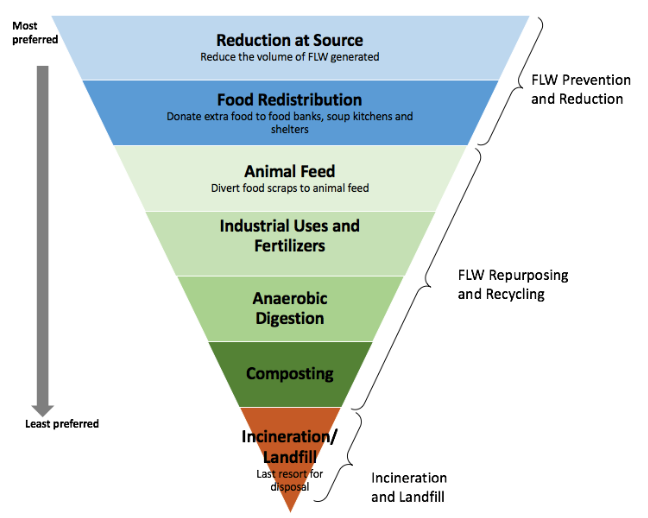
Freshfel Europe contributes to FAO Code of Conduct on Food Loss and Food Waste
In August Freshfel Europe contributed to the consultation on the FAO’s development of Voluntary Codes of Conduct for the reduction of food loss and waste. The Code of Conduct will present a set of voluntary, global, internationally agreed, guiding principles and practices that different stakeholders can adopt to achieve a reduction in food loss and waste while yielding positing outcomes for the environment, livelihoods, food security and nutrition in alignment with the UN 2030 agenda. The consultation asked stakeholders to comment on the proposed outline and structure of the Code of Conduct. In its contribution Freshfel Europe emphasised that priority should be placed on food loss and waste prevention measures at source where possible and to focus repurposing and recycling on circular activities. Furthermore, Freshfel Europe reminded the FAO of the recent development of the UNECE ‘Code of Good Practice for reducing food losses in fruit and vegetable trade’, which provides an in-depth overview of recommended measures to be taken across the whole fruit and vegetable supply chain for the reduction of food loss and waste and to which Freshfel Europe helped develop. More information is available here.
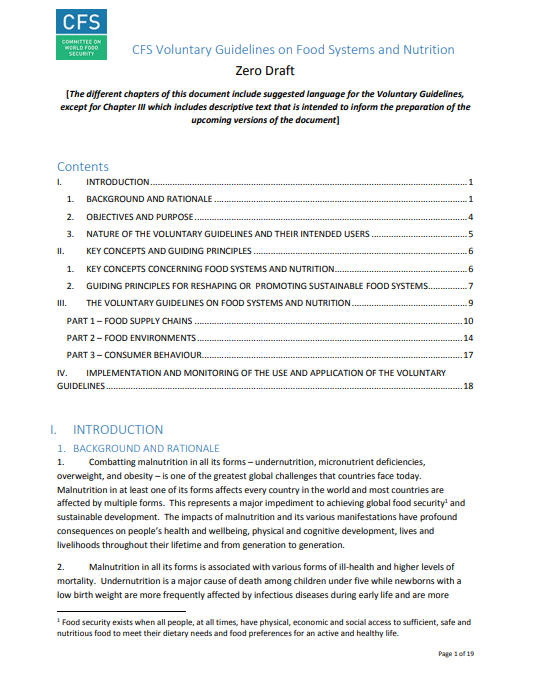
Freshfel Europe contributes to World Food Security Voluntary Guidelines on Food Systems and Nutrition
Freshfel Europe contributed to the Committee on World Food Security’s consultation on the development of its Zero Draft of the Voluntary Guidelines on Food Systems and Nutrition in September. The Voluntary Guidelines are intended to be a reference document that provides guidance to governments as well as to specialized institutions and other stakeholders on appropriate policies, investments and institutional arrangements needed to address the key causes of malnutrition in all its forms (undernutrition, micronutrient deficiencies, overweight and obesity). The outcomes of the consultation will contribute to the preparation of the first draft of the Voluntary Guidelines, which will be negotiated in spring 2020, with in the final Voluntary Guidelines due in October 2020.
In its contribution Freshfel Europe emphasised that while attention should be brought to groups that are historically nutritionally vulnerable, it is equally important to focus efforts on whole populations, which are increasingly suffering from inadequate diet and not meeting the WHO guidelines for fruit and vegetable consumption. Freshfel Europe also highlighted the need for a systematic, holistic, evidence-based approach with a multi-actor strategy to better prevent malnutrition in all its forms. Freshfel Europe noted that children in particular should be targeted as dietary habits during childhood and adolescence highly inform diet choice during adulthood. Freshfel Europe referred to its 2018 Thematic Network Joint Statement on ‘Stimulating fresh fruit and vegetable consumption for healthier European consumers’, which puts forward 43 points of action to achieve a holistic multi-actor and multi-level approach to increasing fruit and vegetable consumption.

Task Force for Fruit and Vegetable Research submits research priorities to European Commission
On 4 September the Task Force for Fruit and Vegetable Research, comprising Freshfel Europe, A.R.E.F.L.H, EUFRIN and EUVRIN, disseminated its view on what the research priorities for the fruit and vegetable sector should look like for the next 7 years to the European Commission. The document is intended to feed into the discussions about the new research framework programme, FP9 or Horizon Europe, that are currently ongoing at the European institutions.
The Task Force elaborated that the main concern for fruit and vegetable research is the clustering and combination of several topics and of several commodities. This approach, while allowing for big flagship projects that increase the visibility of the outcomes to the larger public, will come at the expense of topics that are product-specific but equally important to solve. The Task Force emphasised the essential role that fruit and vegetables play and will continue to play in the future in the sector’s endeavour for more sustainable agricultural on the continent. This may entail devoting attention to particular issues for specific products, rather than combining all products together in one project. To learn more about the Task Force’s vision of fruit and vegetable research in the future, please consult the Vision Document for fruit and vegetable research under Horizon Europe.

Freshfel Europe intensifies preparatory work on Official Control Regulations 2017/625
The Official Control Regulation 2017/625 and its related delegated and implemented acts are coming into force on the 14 December 2019. This reform is unifying several different control related regulations into one and will implement many renewals with regards to administration and digitization. As many cross-related acts are currently under discussion and partially already published, Freshfel Europe has intensified its effort to prepare its membership for the upcoming regime change. In particular this affects the change into the TRACES system and the introduction of a new prior-entry notification certificate ‘CHED-PP’. As these changes require registration and exchange of the operators with national authorities, Freshfel Europe released a fact sheet in August 2019 explaining the key changes of the new regime and cross-cutting effects of the new Plant Health Law 2016/2031. Freshfel Europe has also further intensified its exchanges and monitoring with the European Commission’s DG SANTÉ and in early September called the operators concerned to register as early as possible for the new TRACES system to allow for a first testing of the system before the implementation date. Freshfel Europe will continue awareness raising throughout the coming months and building expertise on the regulatory and administrative changes for fruit and vegetable trade after the 14 December 2019.
